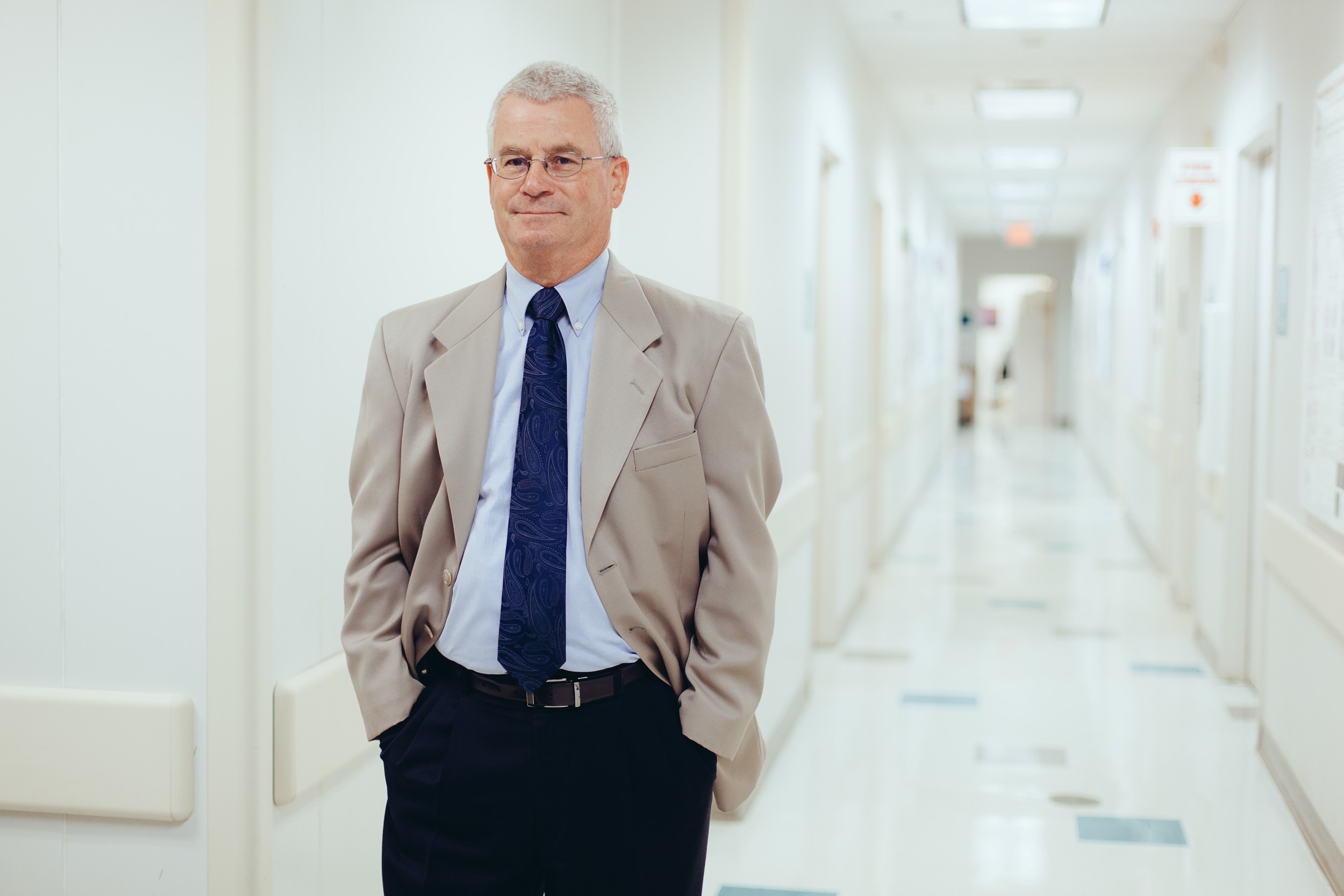Health care reform ‘evolution’ in Rhode Island is well underway
Patient-centered primary care is reshaping how health care is delivered
The emphasis on what the premiums are on the HealthSourceRI exchange is, in many ways, misplaced.
For experts, pundits and media soothsayers who offer comment on health care reform: How much do you pay for your health insurance? What are your co-pays and deductibles? How much is contributed by the company you work for?
For proponents of health care reform: What kind of shared savings contracts should be created by the state of Rhode Island for its Medicaid managed programs?
For consumers: What kinds of interactive role do you want to play in communicating with health care providers in the future?
PROVIDENCE - The opening of Rhode Island’s health insurance exchange on Oct. 1 is a week away, when, for the first time, individuals and small businesses and their employees will be able to shop, compare and buy health insurance plans.
Proponents call the exchange one of the signature pieces in the implementation of health care reform; Republican opponents in Congress want to defund Obamacare – or else shut down the federal government. Consumers are still, for the most part, confused by the choices – and still hungry for good, accurate information.
But, unnoticed (and under reported) by many, the health care reform ‘evolution’ in Rhode Island is already well underway. The state’s delivery system is in the midst of a tectonic shift, moving away from a hospital-centric toward a patient-centric primary care model.
The reality is that the train has left the station in Rhode Island, and there's no going back.
- About 200,000 Rhode Island adults now receive primary care through medical practices that are patient-centered medical homes, participants in the R.I. Chronic Care Sustainability Initiative, known as CSI-RI. The former pilot program, supported by all the commercial and government payers, has plans to expand to include as many as 500,000 Rhode Islanders – one-half the state’s population – in coming years.
- A new initiative, CSI-Kids, is now under development, as a way to take the model of patient-centered medical homes and apply it to pediatric practices and children’s wellness.
- Blue Cross & Blue Shield of Rhode Island, the state’s largest health insurer, has placed its bet on patient-centered primary care to reduce its medical cost spend. It has invested more than $60 million in the establishment of patient-centered medical homes in Rhode Island, providing the necessary financial support for practices to transition to a team-approach.
- Beginning Jan. 1, 2015, new “innovative” health insurance products will be introduced by partnerships of hospitals, insurers and medical practices. These tiered network plans seek to reduce spending on medical expenses that drive increases in the cost of insurance, with an emphasis on primary care and use of patient-centered medical homes.
- The director of the R.I. Department of Health, Dr. Michael Fine, wants to go even further, promoting what he calls The Primary Care Trust. Described as “a new approach to healthy individuals in healthy communities,” its aim is to create and fund what it’s calling “Neighborhood Health Stations” in each Rhode Island community of 10,000 or more.
- Coastal Medical, one of the largest primary care group practices in Rhode Island, serving more than 100,000 patients, has placed its emphasis on patient-centered medical homes and shared savings contracts with insurers. It is the state’s only Medicare Shared Savings Accountable Care Organization; it expedts to receive its first shared-saving check from the Centers for Medicare & Medicaid Services any day now.
- Memorial Hospital’s affiliation with the Care New England hospital network, finalized on Sept. 3, is largely based on creating a new emphasis on primary care within state’s second-largest hospital network.
Transition not without some bumps
Lifespan’s President and CEO Dr. Timothy J. Babineau proudly proclaimed his intention in January of this year to direct the state’s largest hospital network from a hospital-centric to a patient-centric model of care. But, as the recent Lifespan budget demonstrates, with its projected $14 million loss, the road to transition to patient-centered medical care will have lots of bumps.
Dr. G. Alan Kurose, president and CEO of Coastal Medical, is currently getting a MBA from Yale University, and his COO, Meryl Moss, is enrolled in the Brown University masters program in Executive Healthcare Management.
The reality is, Kurose told ConvergenceRI in a recent interview, that there is a need to develop the business competency required to manage the transition to patient-centered care and payment reform based on population health. Kurose, who manages more than 60 spreadsheets to monitor Coastal’s medical costs on a regular basis, said that these business skills are not taught doctors in medical school.
“The quality of the experience that a patient has at one of our patient-centered medical homes, that’s where we start,” Kurose said. “How do we make that happen?” Going back to business school, he continued, is a way for him to acquire the skills that he needs to support that emphasis.
Primary care as a core competency
Dennis D. Keefe, president and CEO of Care New England, told ConvergenceRI that the new relationship with Memorial Hospital was the “critical underpinning” of the hospital system’s future.
“Primary care will necessarily be a core competency of any complete health care delivery system,” Keefe said. “Memorial’s leadership in patient-centered medical homes and its Warren Alpert Medical School of Brown University family and internal medicine residency training programs will provide the critical nucleus of an integrated health care delivery system, with strong primary care as a central and unifying force.”
Focusing on what Keefe called “the full continuum of care,” Care New England recently affiliated with The Providence Center, a community-based provider in the care and delivery of ambulatory mental health and substance abuse services. “It will enable access to all levels of behavioral health care in a seamless and coordinated way,” he said.
In addition, Care New England’s recent partnership with the Rhode Island Primary Care Physicians Corporation, the largest independent network of primary care physicians and practices in Rhode Island, focuses on what Keefe called “the heart” of an integrated health care system: primary care providers. As a result, he continued, the hospital network will be able to take on the management of population health.
“Through management of the care of populations for defined periods of time for a set dollar amount, this approach to health care delivery encourages more effectiveness and efficiency with a focus on keeping individuals well and out of the hospital,” Keefe said.
Community health centers lead the way
Blackstone Valley Community Health Care center sits on the front lines of delivering health care to the residents of Pawtucket and Central Falls, two of the state’s most economically disadvantaged cities. Yet, through its sophisticated use of health IT at the point of care, it has been able to bend the medical cost curve by about $9 million over the past two years. And, Blackstone’s sites were among the highest rated in visit-based patient satisfaction surveys conducted by Neighborhood Health Plan in 2011 and 2012.
Raymond Lavoie, Blackstone’s executive director, said it would be “presumptuous” to talk about what his community health center could teach others about establishing a team-based patient-centered medical home. “So much innovation is occurring in all PCMH practices that we can all learn from each other,” he said. “There is value in knowing each success and each failure.”
He did offer that the “secret sauce,” in his opinion, is having as much information as possible on the patient's health in the caregivers’ hands at the point of care. “Blackstone has had success with its automated approach to quality reporting and analytics, and delivering this information at the point of care,” he said.
The next challenge, Lavoie continued, is creating strategic alliances, aligning Blackstone’s health information exchange with urgent care centers such as Notre Dame, which is now affiliated with Care New England through Memorial Hospital. In large part, urgent care centers have been left out of the state’s efforts to build a statewide health information exchange, but for Blackstone, such alliances are key.
“Blackstone’s patients normally will self-refer to urgent care centers and emergency departments when our offices are closed,” Lavoie said.
Often, Blackstone’s on-call clinicians will direct patients to use these services, and with the alliance in place, Blackstone’s HIE will enable the urgent care center to securely review the pertinent medical information of the presenting patient over the web. In turn, having the urgent care facility send the results, notes, and follow-up instructions of the visit back to Blackstone over the same HIE provider portal, will capture that visit information in the patient’s electronic chart.
The result, Lavoie said, “is that the health system will have provided better, safer care for the patient, and more than likely, at lower cost. The strategic importance of these small first steps in simple use cases cannot be understated.”
Changes in access, changes in practice
For Dr. Peg Miller, director of the Women's Medicine Collaborative, an outpatient facility in the Lifespan network focused on women’s health, the challenges of embarking down the path of a team-based patient-centered medical home practice and joining in with the CSI-RI network are many.
The practice, which seeks to provide a continuum of care for women’s health, is currently focused on how to improve access, one of the triple aims of health care reform.
“Right now, we’re looking at ways in improve access,” Miller said. “I think we’re all kind of struggling as physicians as we get pulled more into the planning, developments and realignments.”
One innovation the practice has adopted is the shared medical appointment, creating a group of eight to 10 patients seeing a team of health care providers for a 90-minute visit, according to Miller. Among the groups created has been a diabetes prevention group.
Instead of a 15-minute appointment with a physician, the patient has 90 minutes of time with a team of health care providers, including a doctor and a nutritionist,” she said. “The patients help each other and support each other.”
The medical group is also looking at ways to offer access after hours and changing scheduling.
The initial focus of joining CSI-RI is not on costs but on quality metrics. “We’re having a nurse care manager lead the team and focus on quality outcomes,” she said.







